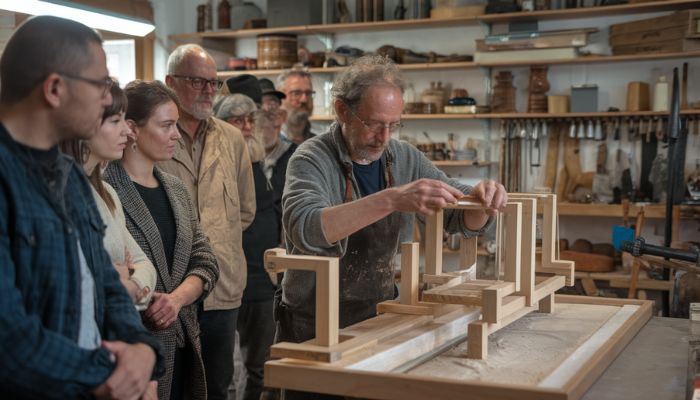
Sourcing local wines and gourmet products in remote areas can be a rewarding journey into the heart of a region’s unique flavors and culinary traditions. Often, the best artisanal foods and wines are tucked away in small villages and isolated regions, far from the bustling cities. These local treasures reflect the soul of the land, offering flavors that you can’t find in mainstream supermarkets or tourist hotspots. Whether you’re looking for rare wines, organic cheeses, or handcrafted preserves, this ultimate guide will help you navigate the challenges of sourcing these exclusive products in remote locations.
Local markets are the beating heart of any remote area’s food and wine scene. In many rural regions, farmers and producers gather weekly or biweekly to sell their fresh produce, artisan cheeses, and homemade preserves. These markets offer a glimpse into the authentic flavors of the region, providing a direct connection to the people who grow, harvest, and produce these goods.
Markets provide access to seasonal produce and freshly made goods, which are often sold by the same hands that made them, ensuring quality and authenticity.
In many remote regions, family-owned wineries are where you’ll find some of the most distinctive wines. These small vineyards often produce limited batches using traditional methods passed down through generations. The wines you find here are typically unfiltered, hand-bottled, and made with locally grown grapes, giving them a true sense of place.
Look for organic or biodynamic wines, as many small vineyards in remote areas practice sustainable agriculture without advertising it. These wines often have a more complex flavor and are produced with minimal intervention.
Staying on a farm or agriturismo is one of the best ways to immerse yourself in the local food culture. Many small farms in remote areas offer accommodation, where guests can participate in daily farm activities, such as milking cows, harvesting vegetables, or even helping to produce cheese or wine. These stays provide access to fresh, homemade products that you can purchase directly from the farm.
Farm stays offer an immersive experience where you not only taste the products but also witness the production process, deepening your connection to the food and wine you’re sourcing.
Many remote regions host seasonal festivals celebrating their local food and wine traditions. These festivals are ideal for sourcing a wide variety of gourmet products, often at their freshest and finest. Producers come together to showcase their best offerings, from rare wines to handcrafted chocolates, olive oils, and artisan bread.
These festivals bring together the best local producers in one place, giving you the opportunity to sample a variety of products and purchase them at their source.
Hiring a local guide can open doors to hidden wineries, farms, and artisanal producers that are often closed to the general public. Guides have insider knowledge of where to find the best gourmet products, and they can often arrange private tours or tastings with producers who don’t typically advertise their products to tourists.
Look for guides who specialize in gastronomy or wine tourism to ensure you’re getting a guide who understands the intricacies of sourcing authentic products.
Once you’ve established relationships with local producers during your visit, many will offer to ship products directly to you after you return home. This is especially common with wineries, cheesemakers, and olive oil producers. You can arrange for regular shipments of seasonal products or even create a subscription service to receive gourmet items throughout the year.
Sourcing products directly from the producers means you can enjoy exclusive items long after your trip, ensuring you always have a taste of the region on hand.
Some remote areas are famous for producing specific gourmet products, making them ideal destinations for food and wine lovers. By visiting these regions, you can source rare, high-quality items directly from the makers. These villages often have a strong tradition of artisanal production, ensuring the products are crafted with care and generational expertise.
Visiting these villages allows you to experience the origin of the products firsthand, ensuring the highest quality and authenticity when sourcing local wines and gourmet items.
To ensure authenticity, buy directly from local producers or artisanal markets. Avoid tourist shops or vendors that sell mass-produced items. Speaking with producers and learning about their production methods also helps verify the authenticity of the products.
Look for small-batch wineries that use traditional methods and locally grown grapes. Ask if the wine is organic or biodynamic, as many small vineyards in
remote areas practice sustainable agriculture without heavy chemical intervention.
For perishable goods, pack them in insulated containers or arrange for the producer to ship them directly. For wines, consider carrying them on your flight if possible, or work with local wineries to ship them safely.
Yes, many gourmet products are seasonal, especially items like truffles, cheeses, and wines. Plan your trip around harvest seasons or festivals to ensure you’re sourcing products at their peak freshness.
Sourcing local wines and gourmet products in remote areas requires a bit of planning and adventure, but the rewards are worth the effort. By visiting local markets, family-owned wineries, and artisan producers, you’ll not only discover authentic, handcrafted goods but also form meaningful connections with the regions and people behind the products. Whether you’re stocking your pantry with artisanal treasures or bringing home a rare vintage, the experience of sourcing locally will leave you with flavors and memories that last a lifetime.